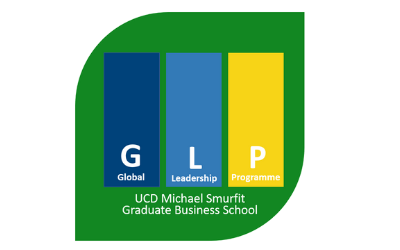What will I learn?
The MSc in Project Management develops students’ practical and conceptual knowledge of the activities and techniques required for the management of projects and project-based organizations. During the programme students apply these in both commercial and non-profit projects giving them real experience to bring to the market. Application and practice of skills is a key element of this programme. You gain:
an understanding of the activities, skills, techniques, and best practices required for the effective planning, organisation, and execution of projects in a wide range of organisations and industries.
consolidation of any prior project management knowledge and skills, and valuable market-relevant experience via two company projects in the profit and non-profit sectors.
the ability to manage the environmental, sustainable and social aspects of the life cycle of a project's resources, processes, and objectives in addition to economic aspects.
How will I benefit?
- A balance of practice and theory within the MSc in Project Management makes it a highly attractive option for students looking to boost their recruitment opportunities after graduation.
- The programme delivers cutting-edge knowledge facilitated by globally experienced project managers, leading academics as well as external industry speakers. You will also experience the reality of the management of projects in a broad range of organisational and industry contexts.
- You develop the ability to make effective decisions in project planning, organising, executing, and reporting using a broad and flexible toolkit of up-to-date techniques.
- You apply this knowledge, mastering the strategic, organisational, and human issues involved in managing projects before the completion of the course via two applied projects working with real company and charity issues.
- Graduates secure sought-after job opportunities as project managers and business consultants in a range of prestigious companies, including Accenture, Bank of Ireland, Deloitte, PwC and Salesforce.
Curriculum
The curriculum is built around a theoretical and practical grounding in management of projects and is taught via a cluster of core modules and a Capstone project.
| Autumn Trimester | Spring Trimester | Summer Trimester |
|---|---|---|
Please be advised that the above reflects the 2023/2024 curriculum structure and is subject to change each year. Option modules listed are indicative of what has been delivered in previous years and are also subject to change.
The MSc in Project Management equips our graduates with practical skills in planning, organizing, and leadership in the project context, within a framework informed by both academic research and practical experience; facilitates our students to learn, practice, and master the discipline of Project Management in order to effectively manage projects over their lifecycle; and allows our students to experience and practice new skills and knowledge in a safe yet challenging multi-cultural and multi-disciplinary learning environment. The programme values honesty, integrity, hard work, a collegiate and open-minded attitude to new ways of working, multi-cultural and multi-disciplinary teamwork, and constant striving for excellence.
This course prepares our students for a career in management of projects in different industries and types of organizations. Real-life case examples and group projects are used as examples to reinforce the understanding. Our students are also given the opportunity to carry out projects with various types of organizations and experience the reality of achieving the project goals and managing different stakeholders, using the knowledge as well as tools and techniques acquired during the course.
The programme provides a challenging yet safe learning environment which puts students into real project environments and allows them to practice and experience the complexities of dealing with all the varied and often competing forces inherent in such situations.
The focus of the programme is to develop effective, usable skills and thought-processes, leveraging a wide variety of both academic and business knowledge, in order to manage projects in an effective and value-added manner for all the stakeholders involved. The programme incorporates a range of approaches to teaching, learning and assessment, including lectures, individual and group projects, case studies, and service learning type projects. Experiential learning is a key element of the programme, together with group work and individual assignments.
On successful completion of the programme students should be able to:
|
Programme Goals: |
Programme Learning Outcomes: |
|
Programme Goal 1: Core Business Knowledge - our graduates will be current in their knowledge of the theory and practice of business management |
Critically assess the theory and practice underpinning project definition, operations and management. Employ suitable theoretical and business models to assist the identification and resolution of business problems. |
|
Programme Goal 2: Communication skills - our graduates will be effective communicators in a variety of business settings |
Synthesize and summarize data and information and professionally communicate outcomes of the analysis & their recommendations to key stakeholders. Select and use appropriate communication strategies (oral, written & visual) to communicate organizational challenges and to define projects to meet these challenges. |
|
Programme Goal 3: Analytical skills - our graduates will be able to analyse industries, markets and competitors to design and implement appropriate competitive strategies |
Undertake and present a detailed analysis with actionable recommendations of a core business/industry situation in written, media and oral forms. Utilise appropriate online databases and primary data gathering to effectively research business environment issues and trends to recommend appropriate strategies to inform the business decision-making process. |
|
Programme Goal 4: Global Perspective - our graduates will be able to work and interact ethically & professionally with others from diverse cultures and backgrounds |
Employ appropriate negotiation skills for working with individuals across differing cultures and disciplinary backgrounds. Demonstrate an awareness of industry frameworks to promote effective and ethical business practices. |
Global Leadership Programme (GLP)
Our optional Global Leadership Programme (GLP) offers you a unique opportunity to engage in a diverse range of co-curricular professional development activities alongside the modules you take on the Master's programme. Participation in the GLP can give you an advantage over similarly qualified job candidates and increase your readiness for success in the workplace.












